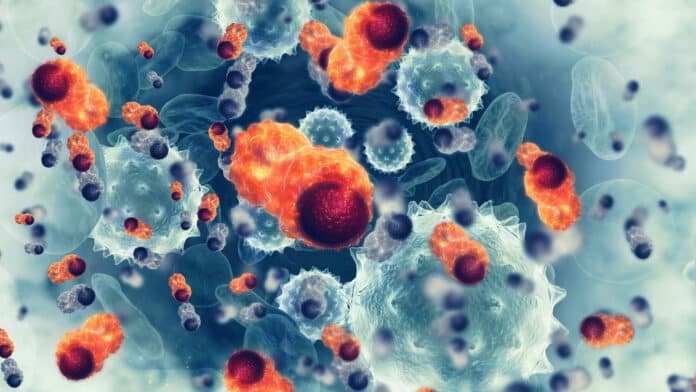Over the past several decades, early-onset cancers have increased in multiple countries. A study by researchers from Brigham and Women’s Hospital reveals that the incidence of cancer- diagnosed in adults in the breast, colorectum, endometrium, oesophagus, extrahepatic bile duct, gallbladder, head and neck, kidney, liver, bone marrow, pancreas, prostate, stomach, and thyroid- was found to rise since the beginning of 1990.
Scientists conducted in-depth analyses to comprehend why many more young people are diagnosed with cancer. For this, they gathered available data in the literature and online, including information on early life exposures that might have contributed to this trend.
From the data, they observed something called the birth cohort effect. This effect demonstrates that each subsequent generation of people born later — for example, a decade later — have an increased risk of developing cancer in the future, perhaps due to risk factors they were exposed to when they were younger.
Shuji Ogino, a professor at Harvard Chan School and Harvard Medical School and a physician-scientist in the Department of Pathology at Brigham, said, “We found that this risk is increasing with each generation. For instance, people born in 1960 experienced higher cancer risk before they turned 50 than those born in 1950, and we predict this risk level will continue to climb in successive generations.”
From 2000 to 2012, Ogino collaborated with lead author Tomotaka Ugai and colleagues to study global data on 14 cancer forms with higher prevalence in persons under 50. The group then looked for research on changes in potential risk variables, such as early life exposures in general populations. Finally, they looked at the literature reporting early-onset malignancies’ clinical and biological tumor characteristics compared to tumors discovered after age 50.
The early life “exposome,” which includes a person’s food, lifestyle, weight, environmental exposures, and microbiota, has seen a significant change in recent decades, according to a thorough analysis conducted by scientists. Therefore, they make the hypothesis that elements like Western food and lifestyle may be causing the rise in early-onset cancer.
The team acknowledged that “this increased incidence of certain cancer types is partly due to early detection through cancer screening programs. They couldn’t precisely measure what proportion of this growing prevalence could solely be attributed to screening and early detection. However, they noted that increased incidence of many of the 14 cancer types is unlikely solely due to enhanced screening alone.”
Ugai said, “Possible risk factors for early onset cancer included alcohol consumption, sleep deprivation, smoking, obesity, and eating highly processed foods. Surprisingly, while adult sleep duration hasn’t drastically changed over several decades, children are getting far less sleep today than they were decades ago. Risk factors such as highly processed foods, sugary beverages, obesity, Type 2 diabetes, sedentary lifestyle, and alcohol consumption have increased significantly since the 1950s, which researchers speculate has accompanied altered microbiome.”
“Among the 14 cancer types on the rise that we studied, eight were related to the digestive system. The food we eat feeds the microorganisms in our gut. Diet directly affects microbiome composition, and eventually, these changes can influence disease risk and outcomes.”
Journal Reference:
- Ugai, T., Sasamoto, N., Lee, HY. et al. Is early-onset cancer an emerging global epidemic? Current evidence and future implications. Nat Rev Clin Oncol (2022). DOI: 10.1038/s41571-022-00672-8
